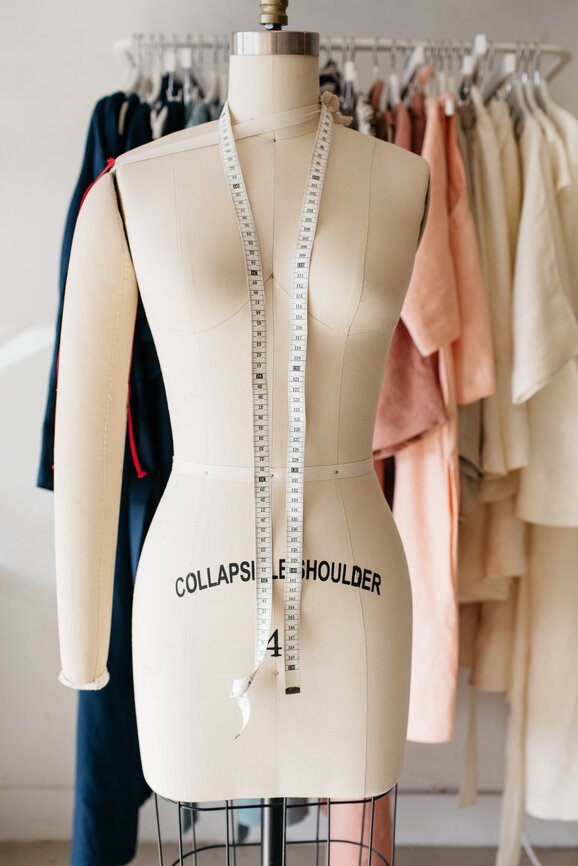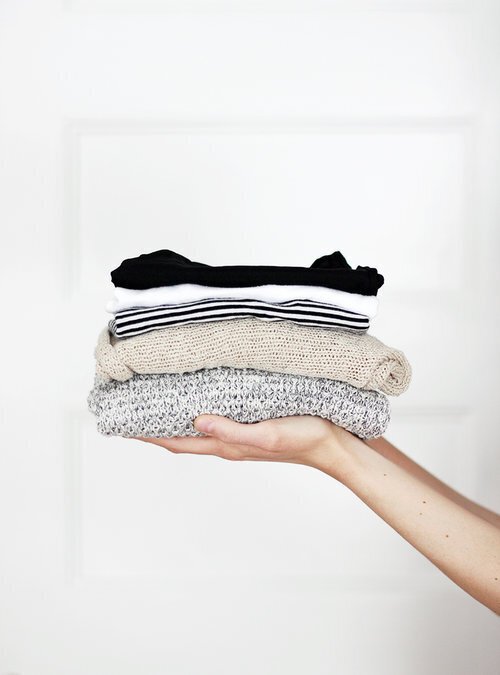
Why Is There Stigma Around “Made In China”?
China Isn’t A Monolith—Neither Is Its Manufacturing
A few years ago, I invited a friend over to see my new apartment. As I showed her around, she picked up a piece of artisan home decor and remarked, “This was made in China? I thought you were all about ethical shopping.” I could feel the air quotes around the word ‘ethical’ as well as her judgement.
I was confused. Who decided that “made in China” was a definitively bad thing? And what exactly were the implications?
“Where something’s produced isn’t as important as how it’s produced.”
The term has gained notoriety in the last two decades; it’s become ubiquitous with the rise of fast fashion and online shopping, thanks to brands like Zara and Forever 21. Google searches for “made in China” and “why is everything made in China” are rampant, topping over 400,000 searches a year. Whereas American goods are seen as sturdy and well-crafted, there are xenophobic connotations that Chinese production must be cheap, low quality, or made in the hands of sweatshop laborers.
But China isn’t a monolith. And we shouldn’t treat the region’s manufacturing as such, either. Because where something’s produced isn’t as important as how it’s produced.
Where Does The Stigma “Made In China” Come From?
First, a quick history lesson. We can’t talk about the term “made in China” without addressing how it became one. The United States’ complicated relationship with Chinese manufacturing started back in the 1940s, thanks to new trade policies and globalization. By the 1970s, outsourcing grew across Asia, as countries like China invested in engineering and technology, country-wide infrastructure, and valuable resources.
By the early 1990s though, products made in Asia were received differently. The public learned of Nike’s use of sweatshop and child labor in Asian factories, and a wave of similar exposés followed.
In the last few years, China has purportedly detained more than a million Uyghurs out of Xinjiang, with thousands being sent to work in factories worldwide. The country calls it “re-education” as a way to combat separatism and Islamist extremism. However, the United States, alongside Canada and the Netherlands, has accused China of committing genocide and crimes against humanity. It’s a human rights violation that demands transparency and answers from Chinese leadership—and from brands working in the region.
“Unethical factories and unfair wages do exist in China…just as they do in the United States.”
It’s important to remember we can’t judge all citizens based on unethical decisions made by a country’s government. These working conditions aren’t the reality for the entire Chinese workforce, especially when the manufacturing industry employs 100+ million people, many in family-owned factories.
Unethical factories and unfair wages do exist in China…just as they do in the United States. Between Los Angeles’ garment workers, working conditions for New York City salon staff, and the “Made in America” nationalism movement, exploitation has become far too commonplace here, too. (See also: Fashion Nova’s use of underpaid employees, while touting “made in USA” labels.) But we are often more focused on classism, racism, and capitalism to think honestly about sweatshops here, aren’t we?
More recently, “made in China” has become affiliated with the months-long US-China trade war from the Trump administration. As Trump falsely referred to COVID-19 as the “China virus,” xenophobia rose to alarming levels. A Pew Research Center survey showed that 60 percent of Americans held an unfavorable view of China, up 13 percent from the year before. 40 percent refuse to buy “made in China” products. Hate crimes against the Asian American Pacific Islander community now are at a record high.
This complicated history has influenced the stigma around Asian manufacturing—but we shouldn’t paint entire countries with broad strokes. Are there unethical factories in China? Yes. Are there also ethical factories in China producing great products? Also yes.
Why China Is Considered a Global Powerhouse
The reality is, our economies (and the success of them) have become inextricably linked. US-China trade rose from $5 billion to $231 billion between 1980 and 2004, and today, China is our biggest trade partner. From electronics to apparel, Asian manufacturers lead the way for American goods. That’s because bringing production back to the US is easier said than done—and because of China’s historic manufacturing potential.
China is responsible for 20 to 30 percent of the world’s manufacturing output—more than any other nation—thanks to its earlier investments in the Industrial Revolution. When it comes to high-quality equipment, solid infrastructure, specialized labor, the ability to scale, and even sourcing sustainable materials, the country’s capabilities are unparalleled.
“It’s more practical to work with local Chinese factories who can handle this skillfully, with a lower one-time carbon footprint.”
Chunks, an eco-friendly accessories brand out of Seattle, produces all goods in Chinese factories for this reason. Founder Tiffany Ju shares, “There just isn’t American production for hair accessories, period. Even if we assemble products here, we have to import the parts. And even if we make the parts ourselves, we have to import raw materials.” Instead, it’s more practical to work with local Chinese factories who can handle this skillfully, with a lower one-time carbon footprint.
If we can’t see local production for ourselves though, how can we vet a factory’s ethics without making assumptions? We need to go straight to brands and ask nuanced questions.
Vetting Ethics in China—And Anywhere
Whether we’re looking at American, Chinese, or Italian brands (or beyond), the first step is to browse a company’s website. LEZÉ the Label, a sustainable and ethical Asian-led brand in Canada, suggests looking for sourcing and manufacturing information. A secondary indicator would be to check the price point—high price points don’t guarantee ethical practices and vice versa, but does a $14.99 retail cost cover fabric and fair wages for production?
To find out more about manufacturing, ask about transparency, certifications, and working conditions. Chunks exclusively works with vendors who’ve received third-party inspections in the past year with TÜV Rheinland or SGS certifications.
LEZÉ the Label works directly with Chinese and Taiwanese family-owned factories who carry Blue Sign certifications. When vetting, the brand raises specific questions: “Instead of asking yes or no questions (i.e., ‘do you pay a living wage?’), we ask about their employee benefits, how they plan to decrease their water usage, how they dispose of production waste.” A brand or factory’s response will give you insight into just how authentic its commitments are.
Right now, the pandemic makes site visits impossible where travel is concerned. In this case, responsible brands will communicate regularly with overseas factories. Ju looks specifically for transparency, by requesting inspection and company records, photos and videos, and live Q&As.
“There are good and bad manufacturers everywhere, and it’s our responsibility as brands and as consumers to avoid defaulting to stigmas and to ask the right questions.”
Brands like Chunks and LEZÉ the Label understand that consumers’ investments in transparent businesses help set a new, better standard. Because there are good and bad manufacturers everywhere, and it’s our responsibility as brands and as consumers to avoid defaulting to stigmas and to ask questions. If, then, we receive unacceptable or unsatisfactory answers, we should demand better—like supporting the PayUp fashion movement for garment workers.
Shopping and sustainability are not a zero-sum game. As consumers, we can advocate for buying local whenever possible. But the next time we see “made in China,” perhaps we can move our minds away from a place of assumption and stereotyping—and towards a place of curiosity instead.
Henah Velez (she/her) is an Editor at The Good Trade. She holds a Master’s in Social Entrepreneurship and is a proud Rutgers grad. Originally from NJ, Henah’s now in Santa Barbara, CA, where she loves shopping small, hanging with her pets, or traveling. Say hi on Instagram!





